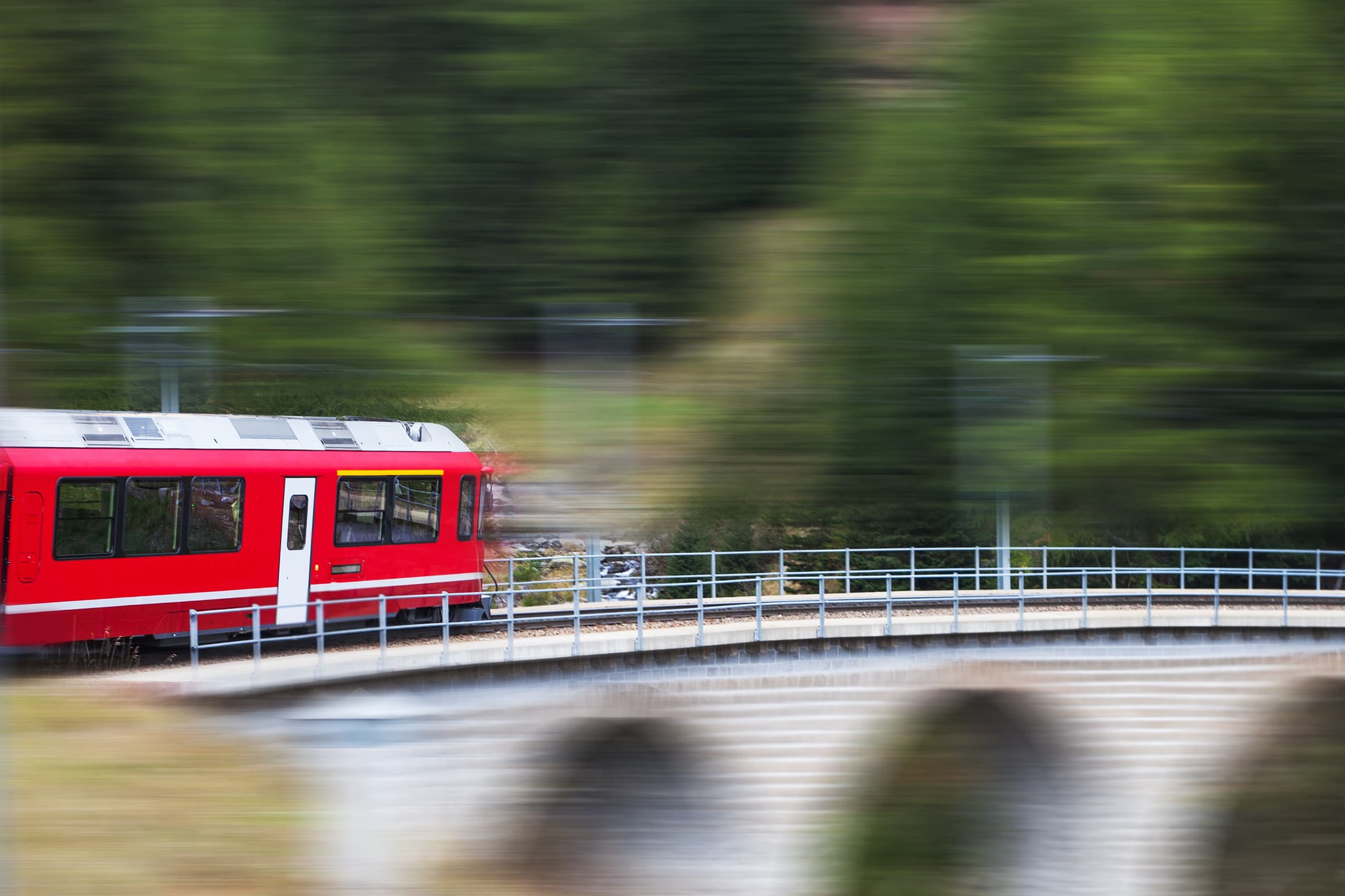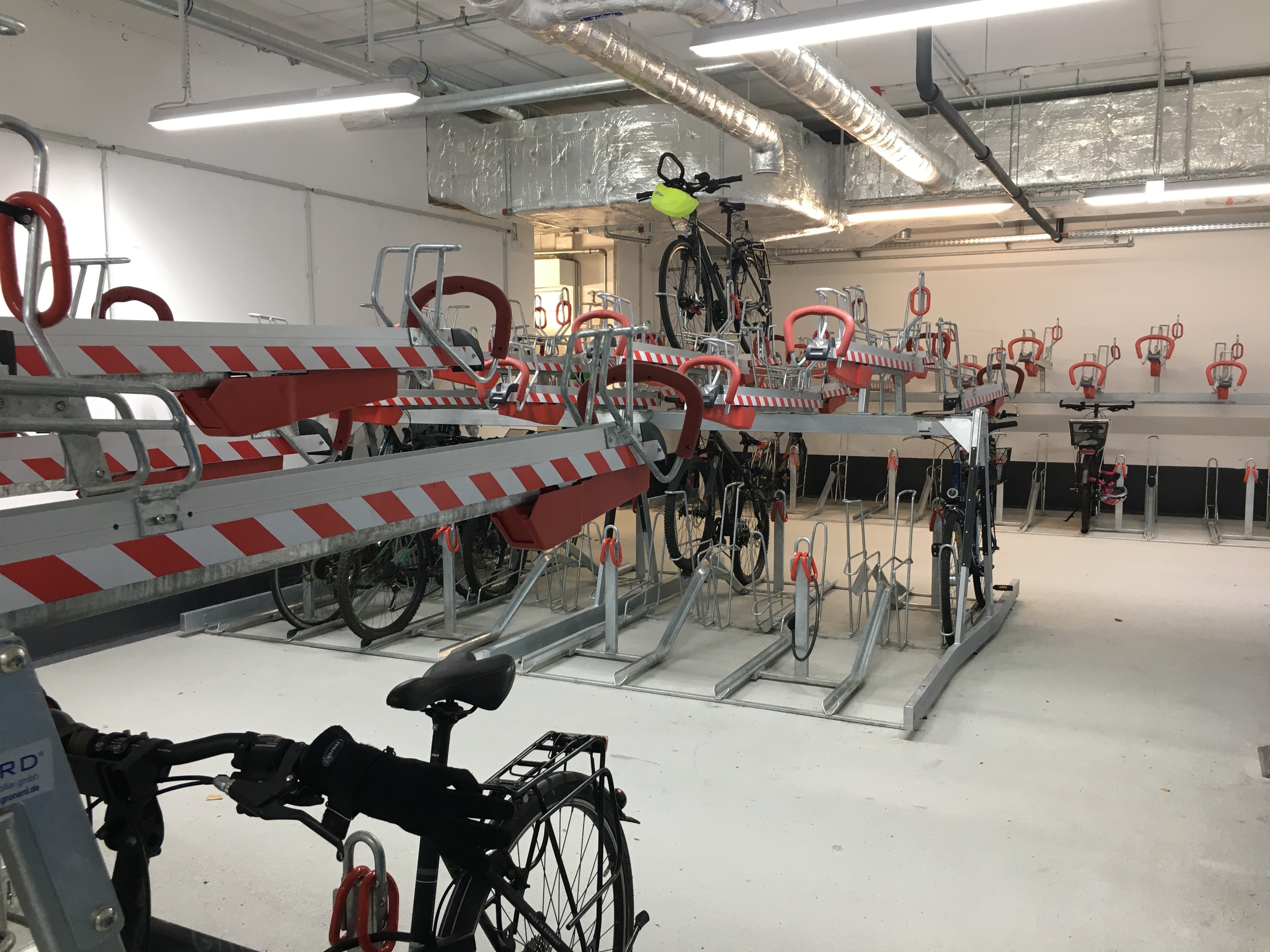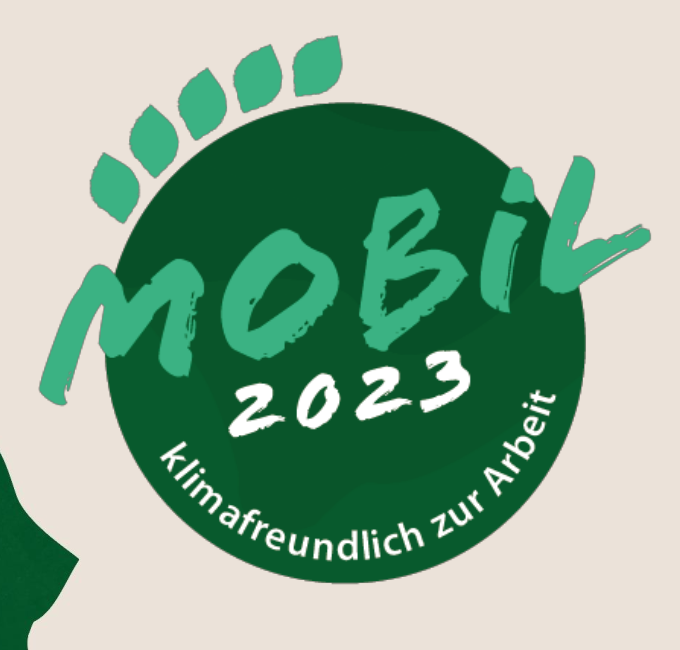Ecological Sustainability at geOps
Introduction
The advancing climate crisis and the growing danger of crossing irreversible tipping points require action by society as a whole. This is accompanied by the responsibility of companies to operate sustainably. In order to live up to our responsibility, we at geOps have been implementing various measures since our founding in order to keep our ecological footprint as small as possible and to have a positive impact on our environment.
Customers and projects
Our commitment to sustainable business begins with the goals and content of our work. Most of our projects involve applications for environmental protection, nature conservation and multimodal mobility. In the field of environmental protection and nature conservation, we develop business solutions that support government agencies, NGOs and research institutes in their tasks in these areas. Concrete solutions help coordinate environmental protection measures or improve resilience to climate change. In the mobility environment, our projects range from infrastructure management for public transport companies to information systems for public transport travelers. With these solutions, we help to increase the attractiveness of environmentally friendly means of transport and thus contribute to the transport revolution. Another important pillar is the sector-independent development of geodata infrastructures for public authorities, associations and private-sector companies.

This selection of work areas is of course not exhaustive, as we always react to the current situation, in particular to the requirements of our customers. However, there are a number of industries or companies for which we would never realize projects. Industries that we exclude from our portfolio in this sense include the extraction or primary use of fossil energy sources and the manufacture of components for them, the use or support of nuclear energy, factory farming or other harmful forms of agriculture, and the armaments industry. Regardless of the industry, we would not work for any company responsible for causing serious or repeated environmental damage, for corruption, tax avoidance and money laundering, or for human rights abuses or pornography.
Environmentally responsible work
For our ongoing work, we inevitably require energy - in our information technology activities, this is primarily electrical energy. Energy requirements arise from providing the work environment for our employees, from using computing power and storage space on servers, and from travel. In addition to energy, we inevitably use other resources and produce waste. In all areas, we strive to minimize the environmentally harmful consumption of resources, produce little waste, and use the most environmentally friendly energy sources possible.
Routes to work
The way to work should be as environmentally friendly as possible. Various measures make it easy for our employees to avoid using their cars. We promote the use of public transport by offering various subscriptions as an extra to the usual salary. In Germany, either the "Bahncard50" or the "Regiokarte" of the Freiburg public transport company VAG can be used. In Switzerland, the general season ticket can be used. The locations of our offices have been deliberately chosen so that there are very good connections to local and long-distance public transport. The Freiburg office, for example, is located directly opposite the main train station. In Olten, there is a bus stop in front of the office, from where Olten station can be reached by bus in a few minutes. The second means of transportation, which we are trying to make even more attractive, is the bicycle. Both offices have secure, illuminated and covered bicycle parking spaces. In Freiburg, the parking spaces are located in the underground parking garage and have lockers and charging options for e-bikes. Our Freiburg office also has a bike-sharing station in front of the building. Free parking spaces for cars are not available at any of the offices.

Home office
The most environmentally friendly way to get around - at least if you ignore the positive health effects of cycling and walking - is no transportation. Since avoiding trips to the office saves time as well as emissions, we encourage home office work. For several years, we have been building a fully functional infrastructure with all the necessary communication tools so that we can also work effectively remotely. This allows us to get by with smaller offices that require less space and less energy. We also subsidize a stable Internet connection at our employees' homes.
Environmentally friendly extras
We are constantly working to make our mobility concepts even more climate-friendly. Especially in the area of extras for our employees, we are constantly adding new, environmentally friendly offers. In addition to the aforementioned options for obtaining public transport subscriptions, we have been working with Rydes, a provider of a mobility budget, since the beginning of 2023. Our employees can use the available budget to purchase regional season tickets, single tickets, and rent bicycles or scooters. The budget also provides access to leasing bicycles. The only thing we have excluded in the contract with Rydes is the use of the budget for private motorized transport. An interesting detail that becomes possible with Rydes is the calculation of one's carbon footprint based on the services paid for with the mobility budget.
To create an incentive to travel in an environmentally friendly way even on vacation, from 2023 we will offer all employees who have not flown for a year up to three additional paid vacation days, depending on their workload. This initiative is intended as an offer whose use is voluntary and based on trust. In designing it, it was important to us that no one should feel restricted or pressured in their private life.
Business travel
Even for business-related travel, we travel almost exclusively by public transport. Fortunately, our clients are all very easy to reach by train. We only travel by car when we are transporting heavy equipment, usually for trade show visits. Flights financed by geOps only occur in absolutely exceptional cases. With these guidelines, we have been able to reduce the distance traveled by car on business trips to less than 5,000 km over the past five years. In the same period, only one flight trip was made.

Work equipment
When it comes to work equipment for our employees, we have long since dispensed with desktop computers in favor of laptops. The lower power consumption of laptops was an important argument right from the start. When selecting other devices such as monitors or routers, low power consumption is also always an important decision criterion. Due to our work with modern technologies, our demands on the performance of electronic devices are above average. Of course, we still use all devices as long as possible. However, in the case of laptops in particular, it is essential to replace them at regular and relatively short intervals of around three years. With each renewal, we make sure that the old equipment is used sensibly and without major detours after its use at geOps. We often make the equipment available to our employees or their family members for private use. Alternatively, we donate the equipment to charitable organizations that use it to support people in need.
Cloud computing
The use of servers accounts for a high proportion of geOps' total energy requirements and thus its carbon footprint. Since the efficiency of server systems increases with their size and utilization of computing capacity, we move the necessary computing power to the cloud whenever possible. When selecting providers, energy efficiency and the use of renewable energy is a key decision criterion. 50% of our servers are operated by Hetzner. In addition to energy efficiency, Hetzner relies on energy from 100% hydropower for its systems . The Swiss provider nine, where we operate 10% of our servers, also relies entirely on renewable energy and is also certified as climate-neutral via myclimate . The remaining 40% of our servers are operated by Amazon. Amazon has set itself the goal of using 100% renewable energy by 2025 . Like Hetzner, Amazon uses energy-efficient servers. However, Amazon unfortunately still has large deficits in the area of climate protection in other branches of the company, so that we reconsider for each application whether it must be operated by Amazon.
Certificates and compensation
To get a proof of how big our ecological footprint is and to be able to compare ourselves with others, we work together with ecovadis. The first results, which will make comparisons possible, will be available soon.
We are staying the course
Despite many measures, we are still far from reaching our goal. Above all, we would like to significantly sharpen the requirements we place on our server providers and analyze the information provided by the manufacturers themselves more closely. At Amazon in particular, we will keep a critical eye on further developments and - if the announced measures towards climate neutrality do not progress quickly enough - increasingly rely on alternatives.





